Effective Strategies for Anger Management. Part 2
Effective Strategies for Anger Management. Part 1
Anger: Understanding and Managing this Powerful Emotion
Exploring the Richness of Complex Emotions
Paul Ekman's Research on Universal Facial Expressions
Unlocking the Power of Emotional Recognition
Strategies to Develop Children's Delay of Gratification. Part 2
Strategies to Develop Children's Delay of Gratification. Part 1
Understanding Delay of Gratification
Cultivating Grit: Some Ideas What We Can Do
Brainology is an educational program and mindset intervention developed by psychologist Carol S. Dweck, the pioneer of the growth mindset concept.
Growth mindset is a psychological concept developed by psychologist Carol S. Dweck that refers to a belief system or mindset regarding one's abilities and potential for growth and development.
Helping children develop grit is a valuable investment in their future success and well-being. Here are some strategies to foster and improve grit in children:
In the journey of personal growth and achievement, there is a psychological construct that sets apart truly remarkable individuals: grit.
Practical Ways to Foster Emotional Intelligence in Children
The Importance of Emotions in Childhood Development
Supporting Healthy Emotional Development in Children: Nurturing Their Emotional Well-being
Building Healthy Foundations: The Importance of Emotions in Childhood Development
The EU-NESET Framework
The Power of Self-Regulation
Building Resilience in Children
CASEL: The Leading Model for SEL
Dear colleagues and friends,
SEL Day 2023
Celebrating International SEL Day with ENSEC webinar
Dear colleagues and friends,
Dear colleagues and friends,
Dear colleagues and friends,
Dear colleagues and friends,
Dear colleagues and friends,
Take Action: International SEL Day 2023
Dear colleagues and friends,
Dear colleagues and friends,
Dear colleagues and friends,
Dear colleagues and friends,
Dear colleagues and friends,
Dear colleagues and friends,
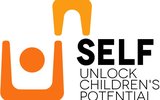
Dear colleagues and friends,
Dear colleagues and friends,
Dear colleagues and friends,
Dear colleagues and friends,
Dear colleagues and friends,
Dear colleagues and friends,
Dear colleagues and friends,
Dear colleagues and friends,
Dear colleagues and friends,
Dear colleagues and friends,
Dear colleagues and friends,
A Great presentation from Rowena Phair
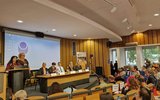
Dear colleagues and friends,
We asked experts from across Europe about their own individual experiences on SEL.
Social and emotional learning comes in a variety of formats. One such format is the use of manualized programs that come with pre-planned lessons and materials for direct use in the educational setting. Some examples of this concept are Positive Action and Second Step. As a simple introduction, this post will be focusing on the program Promoting Alternative Thinking Strategies (PATHS).
Dear colleagues and friends,

“Group activities towards the formation of social and emotional skills in early childhood”
Dear colleagues and friends,
Dear colleagues and friends,
"Authentic social-emotional learning can benefit all students, as it necessitates the inclusion of students of all forms of diversity, especially students with disabilities, to meet the objectives outlined within this definition of SEL. Authentic social-emotional learning can benefit all students, as it necessitates the inclusion of students of all forms of diversity, especially students with disabilities, to meet the objectives outlined within this definition of SEL." ( Sacha Cartagena)

Dear colleagues and friends,
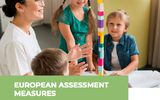
Dear colleagues and friends,
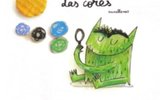
Literature for Children is a place of affections, a place where words are used in a poetic and plurissignificant way, a place where children let themselves be seduced by the illustrations and appealing palette of colours that enrich the verbal text and make them dream and travel in a fantasy world that is so close to their reality.

Dear colleagues and friends,
The third training of the SELF project was in the city of Malmö, facilitated by Lund University. The Swedish school system and local programs about Social and Emotional learning were discussed during this training. What follows is an insight in the training as experienced by Erasmus Brussles University of Applied Sciences and Arts (EHB)
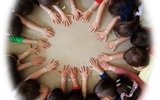
In today's world, with the "rush" of daily life, we often forget to value and even live the present. There is an increasing number of stimulus to which one is supposed to give answers. Children experience daily in their different contexts several tensions - timetables, activities to fulfil, the anxiety of performance and achieving. It is urgent to give children the tools that will enable them to find harmony and balance in face of the adverse rhythm of modern life.
We asked experts from across Europe about their own individual experiences on SEL.
We asked experts from across Europe about their own individual experiences on the SEL.
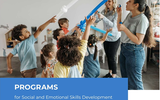
Dear colleagues and friends,
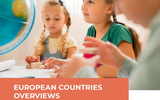
Dear colleagues and friends,
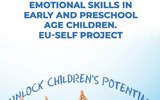
One of EU-SELF project's outputs is a book with a comprehensive review of best practices in the field of social and emotional skills promotion, in each country of the project's partners, namely Portugal, Bulgaria, Belgium, Hungary and Sweden
What does research say about social and emotional learning (SEL) in preschools in general? One way of condensing vast amounts of research into a more accessible format is through systematic review. Basically, summarizing many studies into a single study. In the scope of EU-SELF, we undertook a systematic review aiming to find out what we know, and don’t know, about SEL-interventions in preschool.
We asked experts from across Europe about their own individual experiences on SEL.
Educational models are key to efficiently address social and emotional skills development. Some educational models, by their nature are more suited to promote social and emotional learning. Montessori education is on of such models.
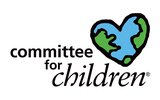
Web-based resources for social and emotional skills promotion offer useful, creative and diverse materials, that educational agents can use to work.
We asked experts from across Europe about their own individual experiences on SEL.

EU-SELF project looked into national educational systems across Europe, searching for good practices in promoting SEL in preschool level, and found a wide variety of approaches.

A very interesting connection: art and the representation of emotions and art & science.
We asked experts from across Europe about their own individual experiences on SEL.
Positive Behavior Interventions & Supports (PBIS) is a tiered framework for supporting the improvement of behavioral, social, emotional, and academic outcomes. Some notable central concepts: utilizing a continuum of evidence-based practices, data-based decision making, and teams to facilitate implementation.
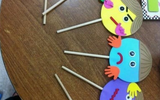
Educational game "Emotions"
We asked experts from across Europe about their own individual experiences of the role of SEL.
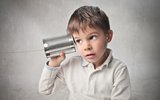
Social and emotional learning comprises a wide variety of skills, integrated on a global structure that will allow kids to be effective managing their emotions and relationships. Active Listening is one of the most important of those basic and essential skills.
We asked experts from across Europe about their own individual experiences of the role of SEL.
Daycare centre Barbara is an ECEC setting in the heart of Brussels in Belgium, that welcomes children between 0 – 2,5 years old.
Daycare centre Barbara is an ECEC setting in the heart of Brussels in Belgium, that welcomes children between 0 – 2,5 years old.
Supporting SEL through outdoor nature play in Daycare centre Barbara. Daycare centre Barbara is an ECEC setting in the heart of Brussels in Belgium, that welcomes children between 0 – 2,5 years old.

Acknowledging the importance of social emotional development in childhood, Centro Social de Soutelo has agreed to implement the Emogenius program in the preschool (5 years age groups). This program is at the stage of validation having already carried out pilot experiences prior to its implementation.
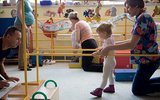
Here I would like to draw attention to the conductive education which is a holistic approach in rehabilitation education and was developed in Hungary in the 1950s.
Some challenging behaviors can be too difficult and persistent to alleviate using good practices. For these situations, a functional behavioral assessment (FBA) and subsequent behavior intervention plan (BIP) may come in handy. These methods are often used for one child and one challenging behavior at a time. While there are various ways of conducting these methods, there are also more standardized and manualized ways of doing them as well. One such method is Prevent-Teach-Reinforce (PTR).
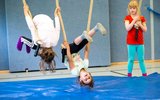
Social and emotional skills can be promoted using a wide variety of activities, namely through sports activities. Montessori IQ Corner Preschool from Tuzla, Bosnia-Herzgovina, shares their experience and good practices

Dear colleagues and friends,